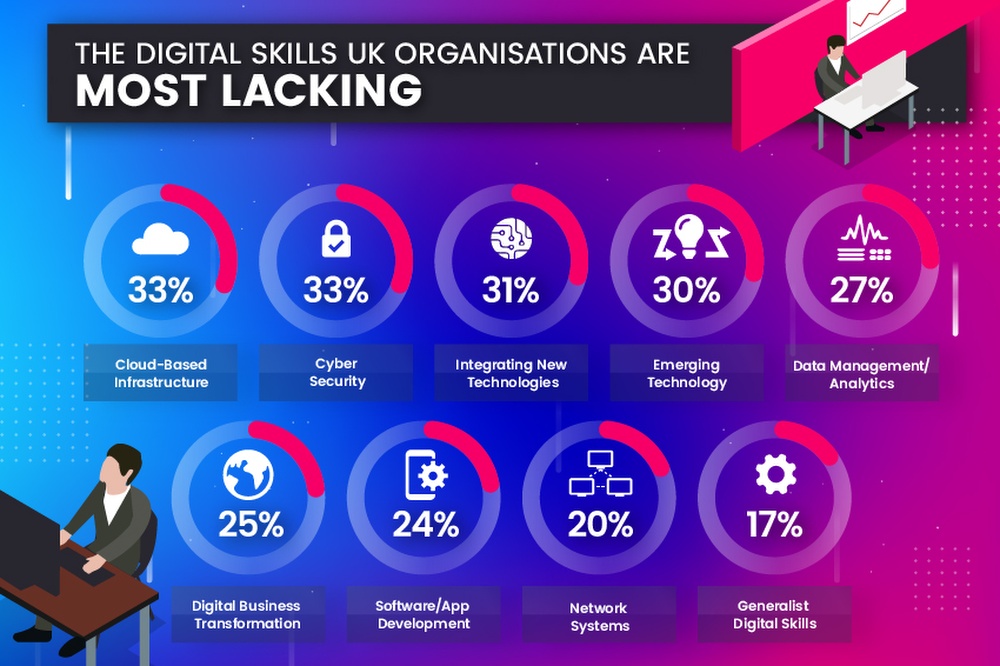Training provider The Knowledge Academy has reported from findings that indicate many employees lack the knowledge needed to meet the demands of a digitally driven organisation.
The company analysed the latest findings from The Open University, which surveyed 500 senior business figures (chief technology officers, HR directors, HR managers) from across the UK to identify the digital skills they think their organisation is most ‘lacking’ presently.
The Knowledge Academy found that the ability to successfully develop and manage a move to cloud-based infrastructure (33%) is one of the two digital skills that senior business figures believe their organisation most lacks.
The other digital skill highlighted by the prominent individuals is inadequate cyber security (33%) competencies. Given how a severe cyber-attack can cripple multiple business functions and compromise sensitive data within a matter of moments, it’s an issue now high on the agenda for key decision makers in many organisations.
Meanwhile, 31% feel their firm struggles to integrate new technologies and/or data sources to existing business practices because they don’t have the sufficient ‘know-how’ to do so. Slightly below, 30% state digital naivety in their business is stopping them from embracing potentially valuable emerging technologies such as artificial intelligence and automation.
Only 17% of the authoritative professionals say they don’t have enough generalist digital skills in their company, while 20% admit they have an internal shortage of the expertise required to effectively administer and operate network systems.
Additionally, upon further analysis of the study by The Open University, The Knowledge Academy also sought to understand at which level of their organisation do the surveyed senior business figures perceive a lack of digital skills to be most problematic.
From this, the company discovered that senior business figures think a digital skills shortage is most problematic in the position of intermediate managers (23%).
Subsequently, 20% feel senior managers in their company don’t have the necessary digital proficiency to adapt and adopt to the needed technological changes/advances.
The senior business leaders rank the digital skills deficit of those at director level in their organisation as follows: director (10%), managing director or above (10%) and board level director or partner (9%).
Just 1% of the high-ranking personnel believe apprentices employed by them have a scarcity when it comes their digital prowess and 2% echo the same sentiments about their entry level workers and graduates.
When questioned, the professionals revealed the ways in which the digital skills gap is negatively affecting their firm’s current performance. They highlighted the following factors: Decreased productivity (56%), inability to implement time/cost-saving technology (47%), less agile/adaptable (43%), reduced competitiveness (41%) and lower profitability (37%).

